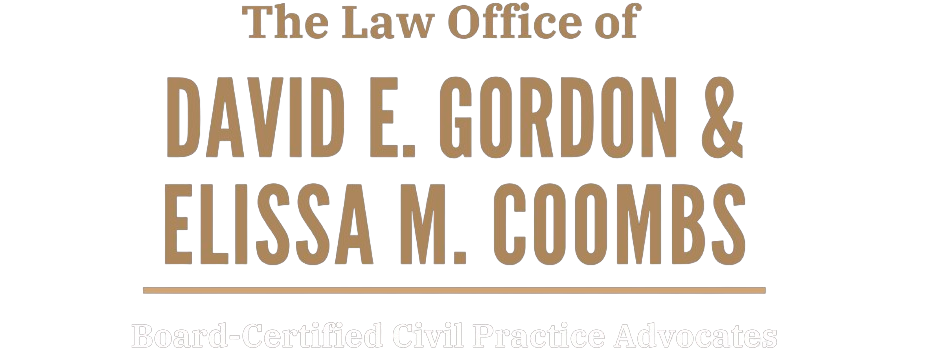
In the aftermath of a car accident, you need to take care of many things such as seeking medical care, reporting the accident to the police and filing a claim with the insurance company. You surely have your hands full.
One mistake that many people who have been involved in a car accident make is assuming that they can rely on an insurance adjuster to aid them throughout the claims process.
While insurance adjusters want you to believe that they are looking out for your best interests, the truth is that the primary job of an insurance adjuster is to save the insurance company as much money as possible.
Here are some tips for dealing with an insurance adjuster after a crash in Tennessee or Mississippi.
If you have more questions, or if you are in need of legal representation, do not hesitate to contact The Law Office of David E. Gordon for a free consultation.
-
MAKE SURE TO REPORT YOUR ACCIDENT AS SOON AS POSSIBLE.
When you are dealing with an insurance adjuster and filing a claim for compensation after a car accident – regardless of whether you are filing a claim with your own insurance company or the insurance company of the other driver – it is essential that you report your accident to the insurance company as soon as is possible.
If you do not report your accident within a reasonable amount of time, or the time that is required by the specific policy, the insurance adjuster may inform you that the company cannot process your claim.
You can avoid this situation by simply filing a claim immediately after your accident. If you would like to read more about when to report an accident to an insurance company, check out this Consumer Reports article.
-
DO NOT GIVE A RECORDED STATEMENT.
The insurance adjuster responsible for processing your car insurance claim will likely ask you to give a recorded statement. While this is a common request, we highly advise you against doing so unless you are being counseled by an attorney.
Even if you were not at fault, even the smallest comment given during a recorded statement could work against you.
Or, suppose that you say, “I didn’t mean to,” or “I’m sorry.” Both of these statements may imply fault, shifting the burden of responsibility for the accident to you. In nearly all situations, refraining from giving a recorded statement for these reasons is always in your best interests.
-
DO NOT SIGN ANYTHING WITHOUT LEGAL GUIDANCE.
Another mistake that many claimants make when dealing with an insurance adjuster is signing anything that the insurance adjuster puts in front of them. By signing a document that you have not reviewed closely, you may prevent yourself from recovering your full damages amount.
Two specific documents to be wary of include:
 A medical release
A medical releaseA medical release may seem innocent enough. After all, you don’t have any conditions to hide, and you were not at fault for the accident, right? So, why would you care if an insurance adjuster has your medical records?
However, an insurance adjuster may actually use your medical data and health records against you.
For example, suppose your health records reveal that your vision is impaired, and you need to wear contacts or glasses while driving. The insurance adjuster may track down a witness who states that, at the time of crash, you were not wearing corrective lenses.
The insurance adjuster may argue that you were partially at fault for your crash and use that as leverage to try to reduce your financial recovery.
 A release of your claim
A release of your claimA claim release is a legal document that states that you are releasing the insured party from any further liability. In other words, you are accepting a settlement offer and giving up your right to pursue any further damages. You should never sign this document until it has been thoroughly reviewed by your attorney.
-
DO NOT ACCEPT A FIRST SETTLEMENT OFFER.
After a car accident, you may be mentally and emotionally exhausted and tired of dealing with insurance companies. You may be worried about your stacking medical bills and ready to get your settlement and move on with your life.
While we fully understand this sentiment, and the temptation to accept a settlement as soon as it is offered, please understand that the majority of initial settlement offers are much less than a claimant really deserves.
An insurance adjuster is hoping that, in your desperation, you will accept anything offered to you. Do not make this mistake.
-
BE POLITE, PROFESSIONAL AND HONEST THROUGHOUT THE PROCESS.
The process of filing a claim and pursuing the money that you deserve can be stressful. Emotions often run high. While you may be exhausted and frustrated beyond belief, resist the urge to lash out.
Instead, you should remain polite, professional and honest throughout the entire process. Be sure to be 100 percent honest about your accident and your injuries. If you are caught being dishonest, the insurance adjuster will likely question the validity of other statements that you make.
MAKE SURE TO CONTACT AN EXPERIENCED CAR ACCIDENT ATTORNEY
Finally, to aid you through the process of filing a claim and to help you to communicate and negotiate with the insurance adjuster responsible for your claim, you should work with an experienced car accident lawyer.
At The Law Office of David E. Gordon, we never charge upfront fees. Instead, you are charged only if your case is successful. Then, we are paid from a percentage of what you recover in a verdict or settlement.
In addition to negotiating with an insurance adjuster, we can also aid you in collecting evidence, filing your claim, proving fault, establishing damages and even going to court if necessary.
To schedule your initial consultation with our lawyers today, please contact us by phone or through our online contact form.








